第38章 VI THE PARADOXES OF CHRISTIANITY(8)
They existed side by side. The Tolstoyans, having all the scruples of monks, simply became monks. The Quakers became a club instead of becoming a sect. Monks said all that Tolstoy says; they poured out lucid lamentations about the cruelty of battles and the vanity of revenge. But the Tolstoyans are not quite right enough to run the whole world; and in the ages of faith they were not allowed to run it. The world did not lose the last charge of Sir James Douglas or the banner of Joan the Maid. And sometimes this pure gentleness and this pure fierceness met and justified their juncture; the paradox of all the prophets was fulfilled, and, in the soul of St. Louis, the lion lay down with the lamb. But remember that this text is too lightly interpreted. It is constantly assured, especially in our Tolstoyan tendencies, that when the lion lies down with the lamb the lion becomes lamb-like. But that is brutal annexation and imperialism on the part of the lamb. That is simply the lamb absorbing the lion instead of the lion eating the lamb.
The real problem is--Can the lion lie down with the lamb and still retain his royal ferocity? THAT is the problem the Church attempted;
THAT is the miracle she achieved.
This is what I have called guessing the hidden eccentricities of life. This is knowing that a man's heart is to the left and not in the middle. This is knowing not only that the earth is round, but knowing exactly where it is flat. Christian doctrine detected the oddities of life. It not only discovered the law, but it foresaw the exceptions. Those underrate Christianity who say that it discovered mercy; any one might discover mercy. In fact every one did. But to discover a plan for being merciful and also severe--
THAT was to anticipate a strange need of human nature. For no one wants to be forgiven for a big sin as if it were a little one.
Any one might say that we should be neither quite miserable nor quite happy. But to find out how far one MAY be quite miserable without making it impossible to be quite happy--that was a discovery in psychology. Any one might say, "Neither swagger nor grovel"; and it would have been a limit. But to say, "Here you can swagger and there you can grovel"--that was an emancipation.
This was the big fact about Christian ethics; the discovery of the new balance. Paganism had been like a pillar of marble, upright because proportioned with symmetry. Christianity was like a huge and ragged and romantic rock, which, though it sways on its pedestal at a touch, yet, because its exaggerated excrescences exactly balance each other, is enthroned there for a thousand years.
In a Gothic cathedral the columns were all different, but they were all necessary. Every support seemed an accidental and fantastic support; every buttress was a flying buttress. So in Christendom apparent accidents balanced. Becket wore a hair shirt under his gold and crimson, and there is much to be said for the combination; for Becket got the benefit of the hair shirt while the people in the street got the benefit of the crimson and gold. It is at least better than the manner of the modern millionaire, who has the black and the drab outwardly for others, and the gold next his heart.
But the balance was not always in one man's body as in Becket's; the balance was often distributed over the whole body of Christendom.
Because a man prayed and fasted on the Northern snows, flowers could be flung at his festival in the Southern cities; and because fanatics drank water on the sands of Syria, men could still drink cider in the orchards of England. This is what makes Christendom at once so much more perplexing and so much more interesting than the Pagan empire; just as Amiens Cathedral is not better but more interesting than the Parthenon. If any one wants a modern proof of all this, let him consider the curious fact that, under Christianity, Europe (while remaining a unity) has broken up into individual nations.